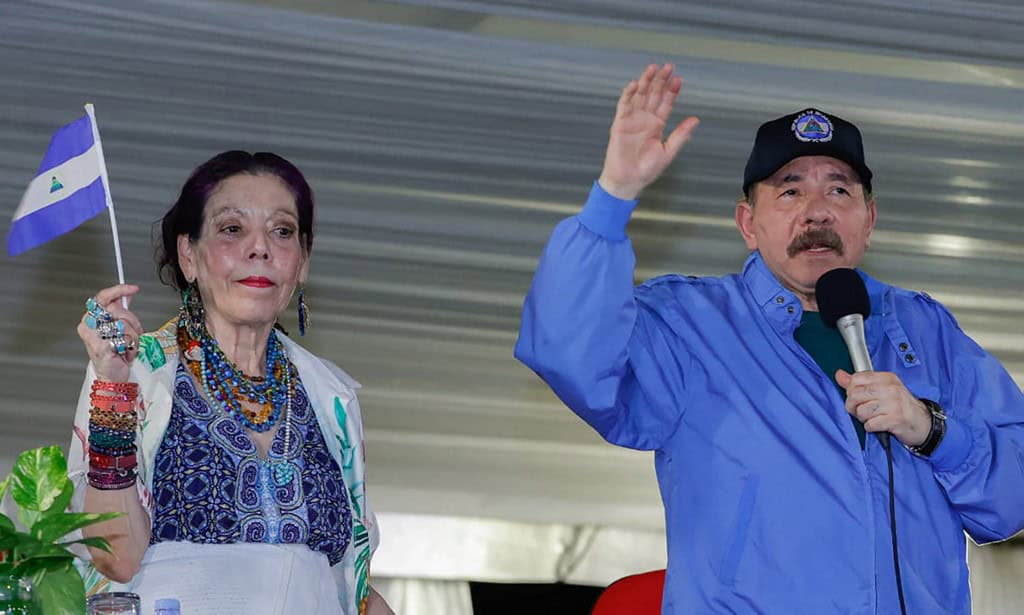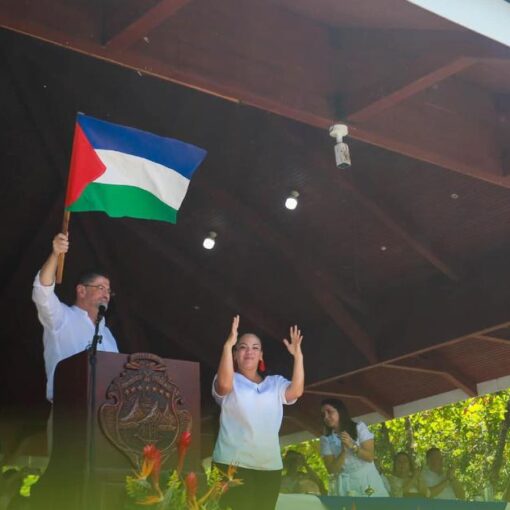QCOSTARICA — The Rodrigo Chaves Robles administration’s attempt to force the Legislative Assembly to once again decide on the future of the Low-Cost Flights Law between Costa Rica and Central America, which the Executive branch vetoed, failed on Thursday, leading legislators to leave at 4:00 pm because there were no bills scheduled.
After the committees scheduled for the morning hours finished their sessions, the Executive branch sent a decree canceling all the bills on the extraordinary session agenda, and instead called the veto imposed on Legislative Decree 10,643 as the sole item.
Once the political control ended, the legislative leader of the PLN faction, Alejandra Larios Trejos, requested a ten-minute recess at 3:53 pm, which was granted. Furthermore, when the recess ended, there was no quorum, so the session resumed at 4:06 pm., six minutes after the time the plenary session is scheduled to move on to the second part of the session, during which the bills convened by the Executive Branch are to be considered.
– Advertisement –
Read more: Rodrigo Chaves vetoes bill for low-cost flights in Central America
However, as the Executive Branch cleared the agenda, the president of the Legislative Assembly, Rodrigo Arias Sánchez, adjourned the session.
Pilar Cisneros, the leader of the ruling party, previously spoke to accuse of fellow legislators of “not wanting to work” because she was unable to attend the veto hearing, as the Assembly’s regulations stipulate that these issues must be considered in the first part of the session, which runs from 3 pm. to 4 pm.
Although it is possible to extend the time window for hearing the issues in the first part, the ruling party did not present such a motion before the recess.
“The Executive Branch canceled the entire bill agenda. Today we had to adjourn the session at 4 pm because we had no bills to discuss, but as usual, legislator Pilar Cisneros held a press conference, lying to Costa Ricans that we didn’t want to work today. But that is absolutely false. Review, Costa Ricans, the bill we had. We didn’t have a single bill to discuss in the second part of today’s session. Therefore, the appropriate thing to do was to adjourn the session,” stated Kattia Cambronero Aguiluz, an independent legislator, criticizing the Executive Branch and the ruling party for the tactics used and for forcing legislators to leave early.
For her part, Alejandra Larios Trejos of the PLN said she was surprised that the ruling party had used a tactic to keep the Assembly from working, and now they were saying it was the opposition that didn’t want to work.
– Advertisement –
“If they’re so clear about how much a session of the legislative plenary or a day in the Legislative Assembly costs, they should value it more. And not like they’ve done during all the extraordinary sessions, when they call very few bills. And what’s worse, today they canceled absolutely all the bills on the legislative agenda around noon, leaving only one, and that’s why the session was adjourned. If we had an agenda, if we had bills to discuss, then of course we would continue in the legislative plenary, discussing and voting on bills that the country truly needs. It’s not right that it’s their fault that we’re not working in the plenary and they want to blame others. That’s not how you deceive Costa Ricans,” said Larios.
President Chaves had attempted the same legislative move in early May, when on Wednesday, May 7, he cleared the agenda so that the legislature would be forced to make a decision on the reseal on Thursday, May 8th.
However, he had to back down because there was no quorum that Wednesday, which prevented the completion of the presidential report to the legislature that day.
Chaves’s move aims to force legislators to make a final decision on the veto, considering that on Thursdays, there are usually not enough legisaltors for qualified votes, meaning those requiring more than 38 votes.
– Advertisement –
What does the cheap flights bill entail?
The proposal by Eliécer Feinzaig, legislator for the Progressive Liberal Party (PLP) and presidential candidate in 2022, calls for airlines to offer round-trip tickets between Central American countries for US$100 and US$120 for flights to and from the Dominican Republic.
In both cases, the cost would be half that of a one-way ticket, that is US$50 and US$60, respectively.
The reduction would be implemented through a reduction in the taxes charged on each ticket.
President Chaves argued against the approved bill and exercised his veto of the bill for reasons of opportunity, convenience, and constitutionality. In his argument, he said that lowering these fares would be a severe blow to local tourism.
Presidential Veto in Costa Rica
In Costa Rica, the presidential veto is the power of the President to oppose the enactment of a law voted on by the Legislative Assembly. This right is exercised within 10 business days of the President receiving the approved bill. The veto may be total or partial, and the Legislative Assembly may reject it with a two-thirds vote of the legislators present.
- Definition: A veto is the president’s power to reject a bill approved by the Legislative Assembly.
- Deadline: The president must exercise the veto within 10 business days of receiving the bill.
- Type of veto: It can be total, rejecting the entire bill, or partial, rejecting only certain parts of it.
- Override: The Legislative Assembly can override the veto with a two-thirds (38) vote of the legislators present.
- Constitutional Authorization: The Political Constitution authorizes the presidential veto in articles 125, 126, 127, and 128, according to the Costa Rican Legal Information System.
- Purpose of the veto: The veto allows the Executive Branch to exercise political and legal control over legislation, according to the Costa Rican Legal Information System.
)
– Advertisement –
Source link
Rico



